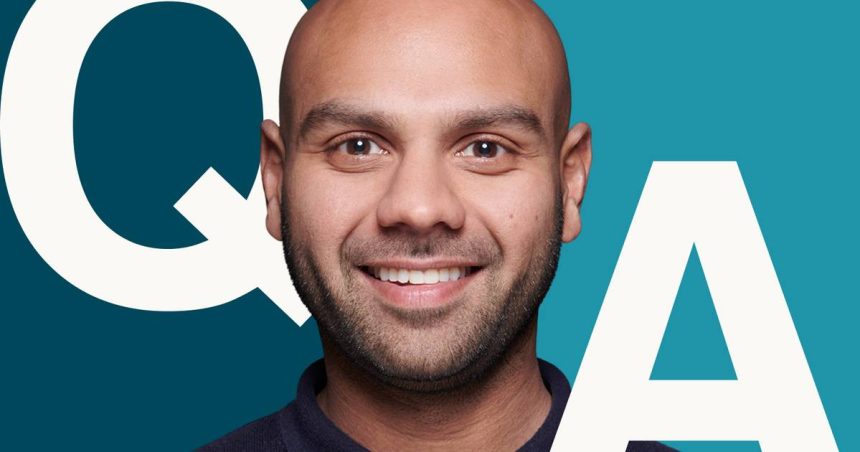If anyone knows what’s keeping ad-tech folks up at night, it’s Shiv Gupta.
As the founder of the ad-tech education company U of Digital, Gupta’s job is to help make sense of some of the industry’s weediest topics, like identity resolution or what the heck a clean room does. Ahead of the New Year, Marketing Brew spoke to Gupta about what his clients are asking about and what he’ll be keeping his eye on in 2025.
This interview has been lightly edited and condensed for clarity.
In 2024, what did your clients ask about the most?
I’d say the topics that are in the most in demand are still all things CTV-related. It’s a new frontier. It’s changing really fast. People want to learn about all things CTV. No. 2 is new. It’s AI. That’s an entirely new frontier, and it’s moving really fast. Commerce media is another big one. That’s newer, too…[Topics like] clean rooms, identity, privacy, it’s kind of quieted down significantly on that front, which I find to be fascinating.
AI can mean a thousand different things. What specific pieces of AI are advertisers asking about?
A lot of people don’t feel comfortable with the basics of AI right now. [They’re asking], help me understand large language models versus generative AI, help me understand the basic nuts and bolts first…help me understand how AI is revolutionizing planning. How is it revolutionizing activation and buying? How is it revolutionizing measurement and analytics? What are the tools people are using from an AI perspective to change how they do work in those areas?
I covered the Google ad-tech trial for two weeks, and I feel like a sucker writing about any company not named Google because of its dominance. Between Google and The Trade Desk, how are the other players in the ecosystem differentiating themselves?
I think it’s tough. The first thing that any one of these companies needs to be doing, and Viant did this with its AI thing, is follow The Trade Desk’s model: be visionary, get ahead of where things are going…don’t play catch-up…If you think about the things that The Trade Desk has done over the years, they got in way early on, CTV, they got in way early on identity…Now they’re doing the OS thing. People are, like, “What? Where did that come from?” It came out of left field. But it’s visionary. It gets ahead of things. If you’re an ad-tech company, stop playing catch-up with The Trade Desk.
Get marketing news you’ll actually want to read
Marketing Brew informs marketing pros of the latest on brand strategy, social media, and ad tech via our weekday newsletter, virtual events, marketing conferences, and digital guides.
What will you be paying attention to in 2025?
The biggest one is antitrust. There are so many different potential impacts. We’re probably going to get some decisions…I think things are going to start mattering next year, even if there’s not, like, an official breakup or anything like that. I think we’re gonna have more clarity on what’s happening, and that’s gonna have so many downstream effects.
[The resolution of Google’s ad-tech antitrust case] will probably be the most impactful thing to ever happen in digital advertising, just from a perspective of how it affects competition, how it affects investment in the space, how it affects product innovation, how it affects marketers and their tech stacks, on and on and on.
A distant [second] is just a pick-up in M&A…We’re kind of back in that mode of things coming together and consolidating. Particularly as CTV and retail commerce media continues to evolve and consolidate…when does the whiplash start with some of those things?
What about commerce media?
There’s all these retailers that are trying to do it themselves. I think companies like Criteo and then, to a lesser extent, The Trade Desk, Yahoo, you could say companies like Pacvue, Flywheel, they have set themselves up really nicely for when a lot of these retailers decide, “Okay, we’re not doing this anymore on our own. We need to partner, we need an intermediary, we need to sell it through a marketplace.”
It seems like it’s been a bad year for verification companies. Where is that heading?
I think they have to pivot their business away from verification.
First of all, they have perverse incentives as a business, and everyone’s starting to question that. And I think that’s totally fair and reasonable, right? They only make money when things are broken, and then they go out and say, “We fix the broken stuff,” right? If you look at it from a macroperspective, everything is still broken, even more broken, potentially, than it was five years ago. What have you guys achieved? What have you guys accomplished? How have you actually helped, if at all? That’s a very loud discussion right now that’s happening on a regular basis…I think they have to meaningfully pivot their business into new areas that are adjacent to brand verification or safety, more into things like measurement.
Read the full article here





